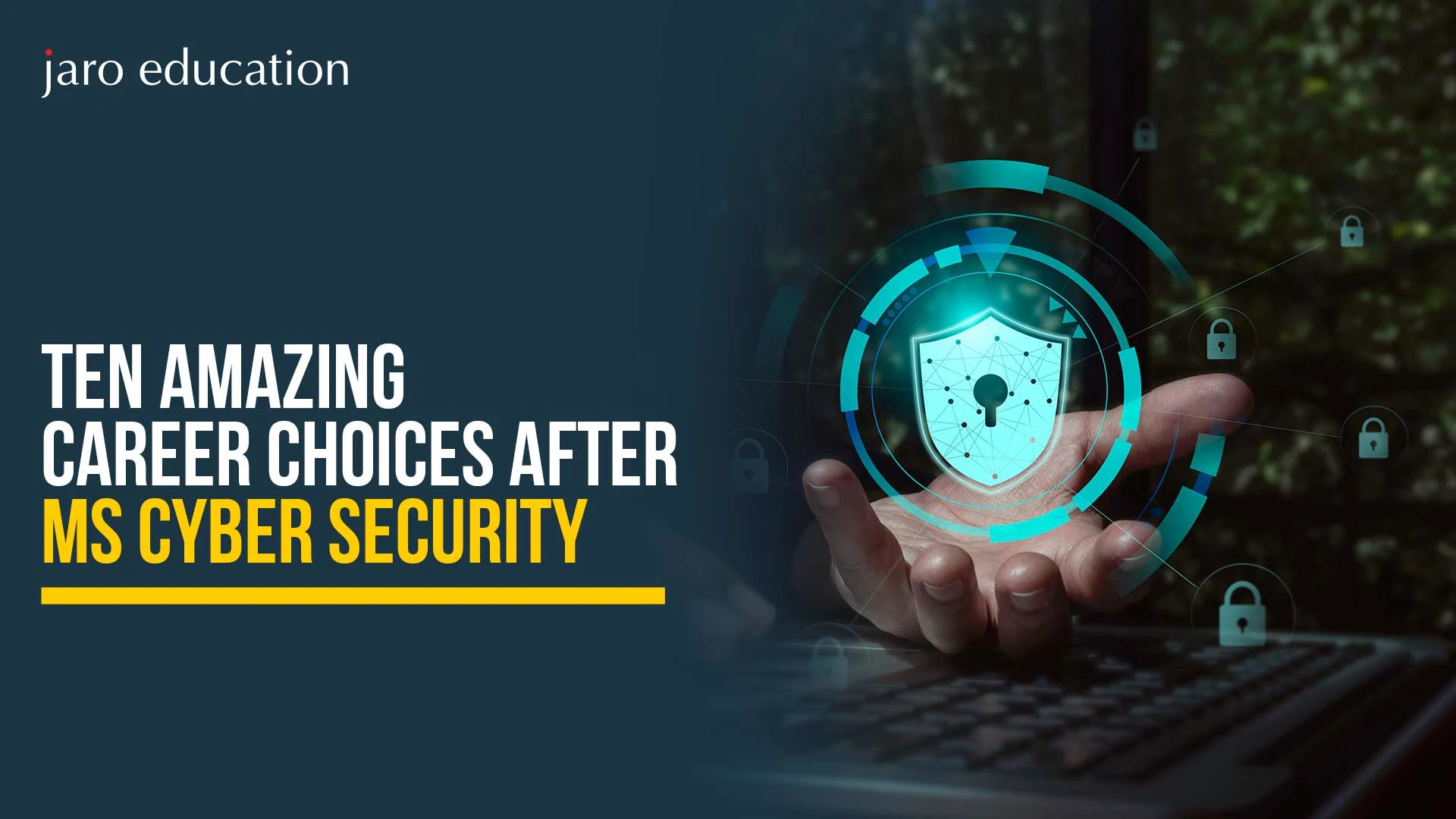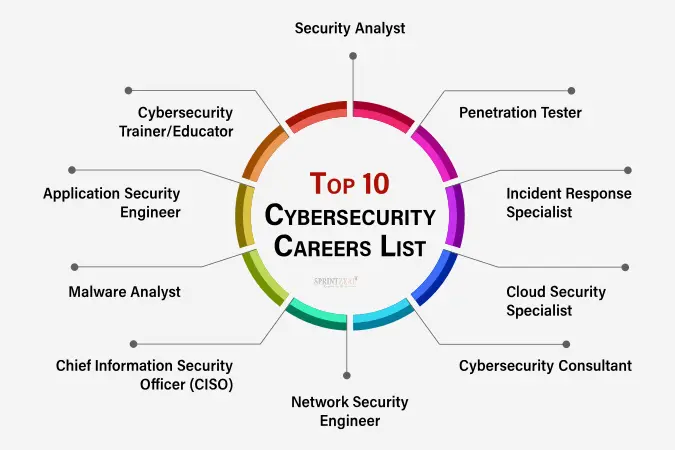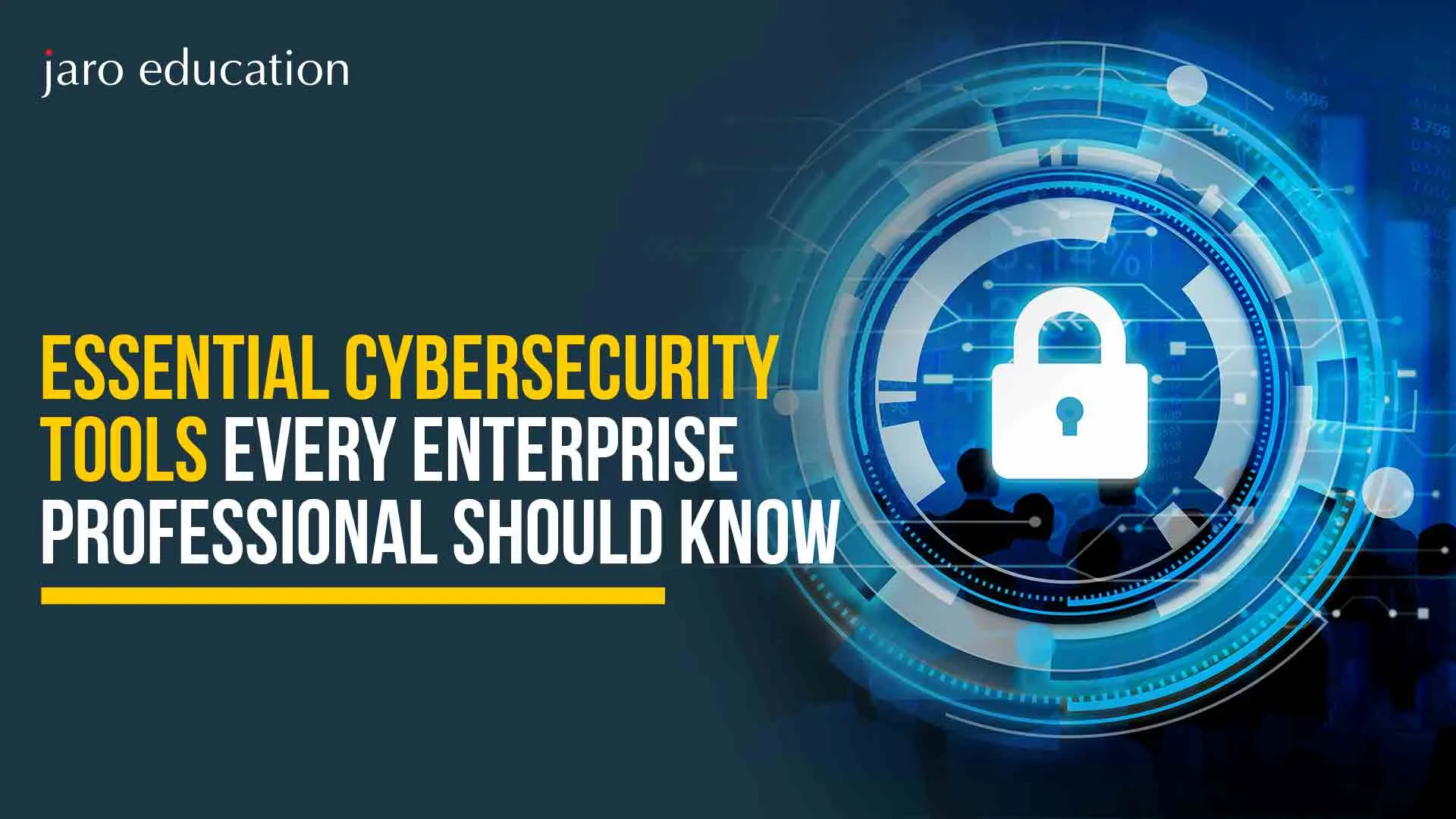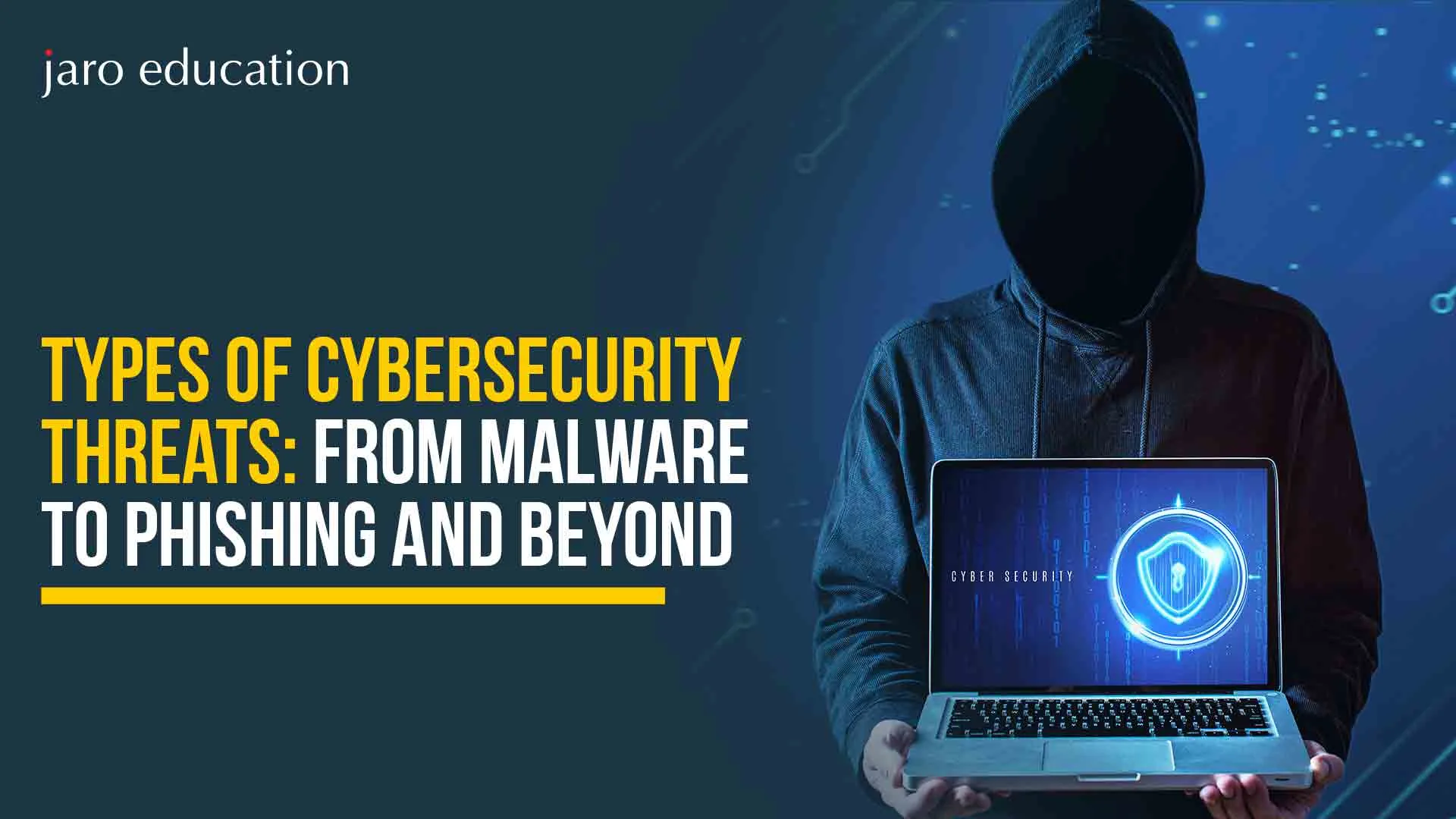Ten Amazing Career Choices after MS Cyber Security
Table of Contents

Pursuing an MS in Cyber Security opens up a wide array of dynamic and rewarding professional paths. From entry-level cyber security jobs to high-impact leadership roles, this advanced qualification arms you with technical depth and strategic insight. In the digital age of today, cyber security careers are seeing unprecedented demand, where organizations look to keep at bay threats that have become increasingly sophisticated. Be it taking your first step or leveling up the game, exploring promising cyber security jobs can help you align your skillset with the right opportunity. If your target is entry-level cybersecurity jobs, this MS provides a very strong foundation and as you progress, you will be stepping into those roles that influence the entire IT ecosystem. Over the course of this blog, let’s take you through ten amazing career choices after your MS in Cyber Security, detailing what each role entails and makes it exciting, while also providing some advice on how to position yourself for success in this thriving field of cybersecurity careers.
1. Security Operations Center (SOC) Analyst
One of the most accessible entry-level cyber security jobs post-MS is the role of a SOC Analyst. In this role, you’ll monitor, detect, and respond to security events in real time by using SIEM tools, threat feeds, and incident response protocols. Many aspiring professionals get their feet wet in the cyber security jobs market through SOC teams, gathering valuable hands-on experience defending networks and systems. With strong performance and certifications, you can quickly move on to senior operations or incident responder roles within the spectrum of cyber security careers.
2. Cybersecurity Engineer
As a cybersecurity engineer, you design and implement secure systems and architectures in an environment that’s so full of threats at each and every corner. This shifts the bar away from regular entry-level cyber security jobs into something both highly technical and strategic. Moving from an MS program into this role means applying advanced knowledge in areas such as cryptography, secure design, and cloud protection, making this position a quintessential premium job in cybersecurity in which your MS helps you stand out among candidates.
3. Penetration Tester / Ethical Hacker
If you enjoy thinking like an adversary, the role of a Penetration Tester is pretty compelling. You will be actively simulating attacks, finding vulnerabilities, and helping organizations harden their defenses. Such jobs are part of the growing range of cyber security careers where creativity and technical curiosity stand tall. Beginning with some entry-level cyber security jobs in red-team environments, one can build up to specialized roles as a penetration tester and become a sought-after professional in the field of cyber security jobs.
4. Security Architect
The Security Architect designs the blueprint of the organization’s security posture: networks, systems, applications, and controls. It is a strategic role that often requires several years of experience, but an MS in Cyber Security can fast-track your path toward it. Among the top tier of cybersecurity careers, this role represents how far you can go from your initial entry level cybersecurity jobs into leadership within cybersecurity jobs.

*1st Formations
5. Cyber Risk & Compliance Consultant
In this role, you evaluate business processes, regulatory requirements, and risk frameworks. You will advise the organizations on aligning security with compliance, managing risk, and implementing governance frameworks. Consultants in this domain exemplify how you can evolve from entry-level cyber security jobs focused on technical tasks to broader roles in cyber security careers that combine strategy, law, and controls. Cyber security jobs in compliance are particularly in demand within highly regulated verticals like finance and healthcare.
6. Digital Forensics & Incident Response Specialist
When a breach occurs, specialists in Digital Forensics & Incident Response step in to determine what happened, how it happened, and what comes next. Such roles are indispensable in the incident-response ecosystem of any company and represent rich cybersecurity careers based on investigation, analysis, and remediation. You can grow into full-scale forensic roles, which are among the most technical and in-demand cybersecurity jobs, starting from entry-level cybersecurity jobs as a junior IR analyst.
7. Cloud Security Engineer
As more and more organizations are moving toward cloud services, the requirement for Cloud Security Engineers—experts who secure both cloud platforms and containers—is at an all-time high. Starting from your MS in Cyber Security, you can take cloud-security modules and specialize in that niche. It’s a strong direction within cyber security careers wherein you progress beyond standard entry-level cybersecurity jobs into cloud-first roles, adding value to the portfolio for cybersecurity jobs focused on modern infrastructure.
8. IAM Specialist
IAM Specialists make sure that the right users have the right access at the right time. This is a very important role when it comes to protecting the digital identities and access vectors of organizations. It is a good choice for those seeking cyber security careers linked to the governance and control of credentials, not just purely technical hacking or architecture. You can start with what may be considered entry-level cybersecurity jobs, such as IAM technician or support, and work your way to Senior IAM Specialist or Architect positions within the realm of cybersecurity jobs.
9. Security Consultant / Advisory Services
The security consultant’s role involves advising clients, developing strategies, and implementing security programs while mostly coming in as an external expert. These are very sought-after cybersecurity careers, as they combine technical knowledge from the student’s MS with business acumen. You could make entry through slightly more accessible entry-level cybersecurity jobs in advisory or junior consulting before becoming a full-fledged consultant tailored to cybersecurity jobs in global and boutique firms.
10. Chief Information Security Officer (CISO)
The ultimate leadership role in security for many professionals is the CISO. While it isn’t truly an entry-level cyber security job, your MS in Cyber Security gives you credibility and strategic awareness to make your way up the ladder. This role represents the pinnacle among cyber security careers and shows what long-term growth in cyber security jobs can look like. From senior roles such as Head of Security Architecture or Risk Management, you can pave the route toward becoming CISO of a major organization.
How to Level Up in the CyberSecurity Role?
Much as your MS qualification alone is not enough to land one of these top cyber security careers, it is complemented by certifications such as CompTIA Security+ or CISSP-Associate for entry-level cyber security jobs. Hands-on experience through internships, lab projects, or SOC rotations helps employers see that you are ready. Networking with professionals in the field, attending security conferences, contributing to open-source security tools or Capture-The-Flag events-all these will increase your profile for more advanced cyber security jobs.

*Sprintzeal.com
Start by selecting the role that interests you, be it forensic investigation, cloud protection, or strategic advisory work; then map out the certifications, skills-for example, Python, SIEM tools, cloud security frameworks and experience needed. As you make your way from entry-level cybersecurity jobs into your chosen career path, you will slowly move into the mid and senior tiers of the overall range of cybersecurity careers.
Enroll in Online MCA Degree by Amrita Vishwa Vidyapeetham
This is a great opportunity for freshers and working professionals in the IT sector to enhance their technical skills and career prospects with the Online MCA Degree by Amrita Vishwa Vidyapeetham. Further, this UGC-entitled program offers comprehensive insight into programming, database management, software development, and other advanced technologies like AI, cloud computing, and cybersecurity. The curriculum is an ideal blend of conceptual learning and practical application, hence enabling students to acquire appropriate skills related to the industry. Offered in collaboration with Jaro Education, this online MCA program assures flexibility, quality mentorship, and a globally recognized qualification, thus making it an ideal choice for working professionals and graduates to excel in the vibrant tech industry.
Final Thoughts
Completing an MS in Cyber Security will also open a wide array of options that are dynamic and high-impact, from SOC Analyst to CISO. Each one of these ten roles described shows how you can take your journey deeper through careers in cyber security-further beyond those entry-level cyber security jobs to specialized or leadership positions. The market for cyber security jobs is strong, and done correctly, you’ll be well on your way to a rewarding, evolving, and influential career in this very important domain. Let your advanced degree serve as a launching pad; let the certifications, experiences, and strategic choices do the rest in securing you your perfect role within the vast landscape of cyber security. If you’re ready to explore your next step and line up your goals with the right career path, the future of cybersecurity careers will be yours for the taking.
Frequently Asked Questions
What jobs can I get after cybersecurity?
With your completed degree, there are several options to look out for, such as security analyst, penetration tester, and network defender, among other cybersecurity jobs. These then provide the foundation for rewarding and growing cybersecurity careers.
What to do after a cybersecurity degree?
You can apply for entry-level cybersecurity jobs after earning your degree, which provides hands-on experience in protecting systems and networks. This helps you build a solid base for advanced roles and long-term cybersecurity careers
Is AI replacing cyber security jobs?
AI is transforming, not replacing, cybersecurity jobs, by automating repetitive tasks and enhancing threat detection. Skilled professionals are still essential in order to manage and interpret AI-driven tools in cybersecurity careers.
Which pays more, AI or cyber security?
Of these, AI and cyber security jobs have competitive salaries, which are dependent on specialization and experiences. However, advanced cyber security careers offer more lucrative opportunities, since the demand for skilled defenders is growing steadily.


















